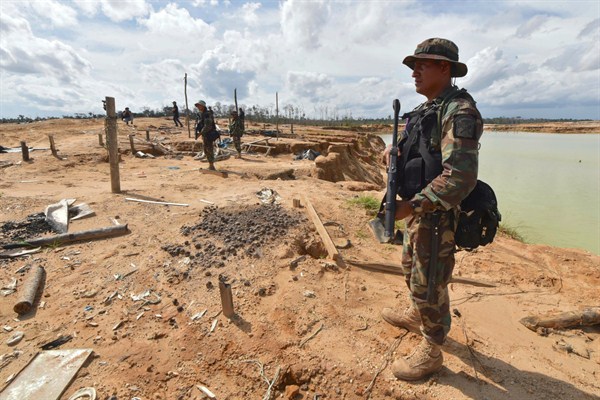Peruvian authorities are touting an aggressive new military-led effort aimed at eliminating widespread illegal gold mining activities, which have caused massive deforestation and pollution in the fragile Amazon rainforest. But this kind of militarized environmental management could further complicate an already messy situation in Peru.
On March 5, senior Peruvian defense officials inaugurated the first of four new military bases near the remote Tambopata National Reserve—part of their new campaign, codenamed Operation Mercurio, or Mercury, focused on restoring order and eliminating illegal mining in the southeastern region of Madre de Dios, the epicenter of illegal gold mining in Peru. President Martin Vizcarra also declared a 60-day state of emergency in the region to coincide with the operation. The authorities will be empowered to aggressively pursue suspected illegal gold miners and their support network. During the state of emergency, basic constitutional rights are suspended, including most civil liberties and restrictions on freedom of movement.
Operation Mercurio began on Feb. 19 when a 1,500-strong combined Peruvian army and police force established a beachhead in La Pampa, a lawless mining town that is close to both the Tambopata National Reserve and Bahuaja-Sonene National Park—protected environmental areas that have nevertheless seen rampant mining either within them or in the designated buffer zones around them. The force began seizing illegal mining excavators, known as “carrancheras”—a mechanical dredge used to extract gold from sand and mud—and other equipment left behind by fleeing miners.

